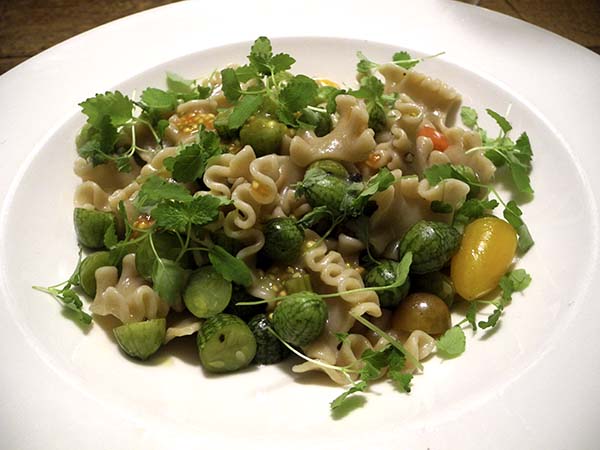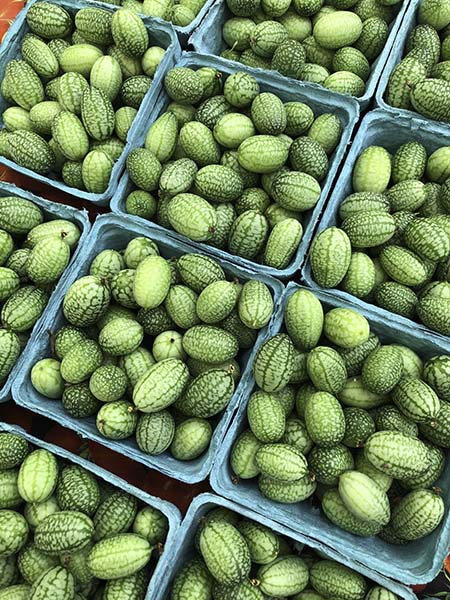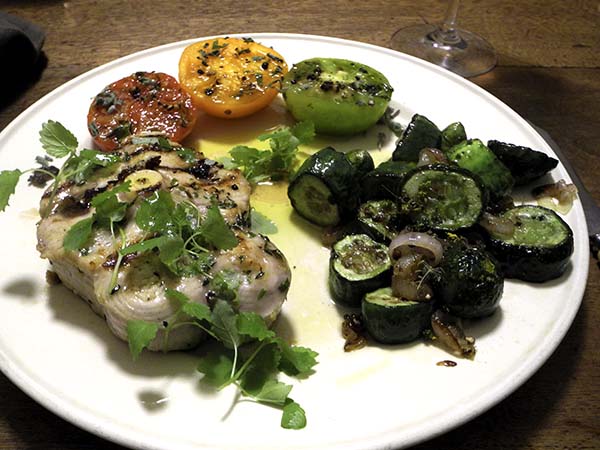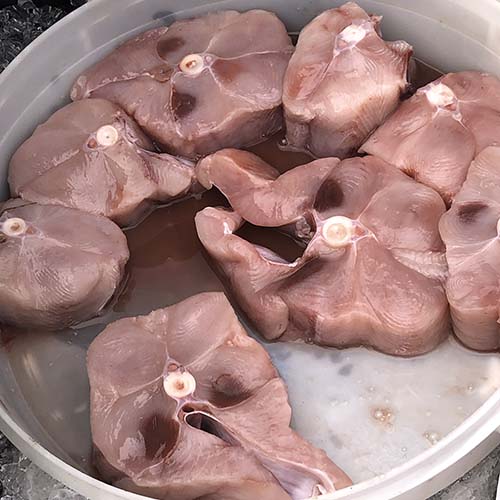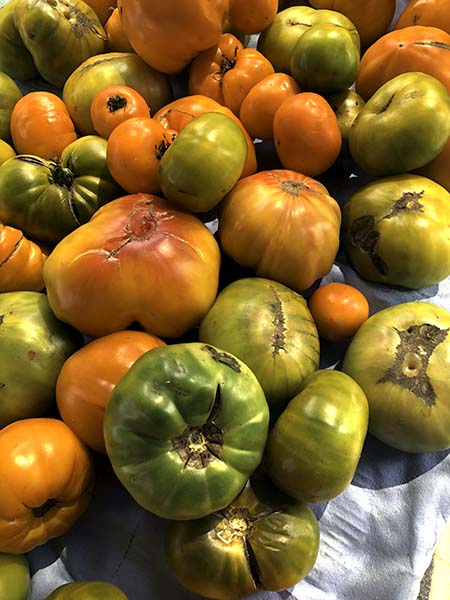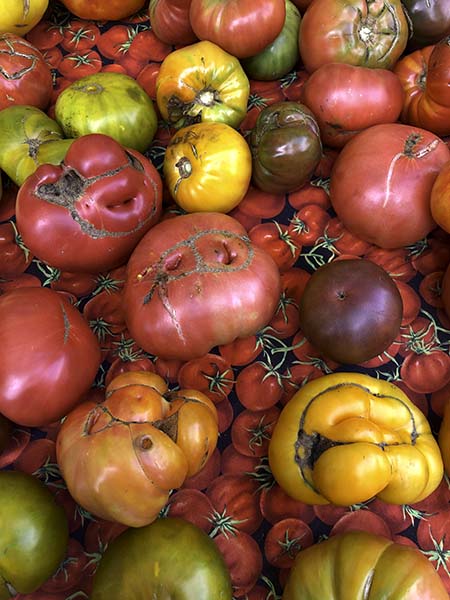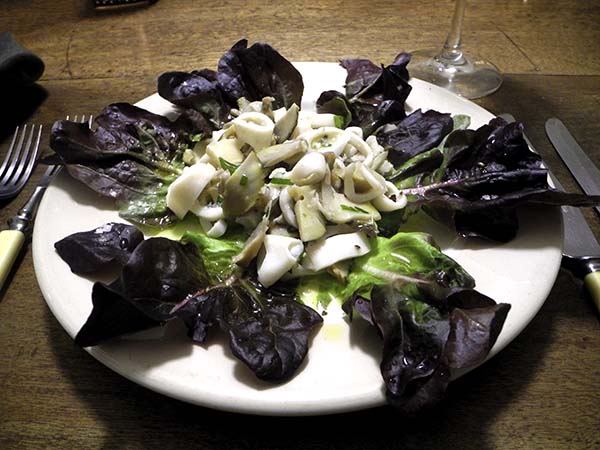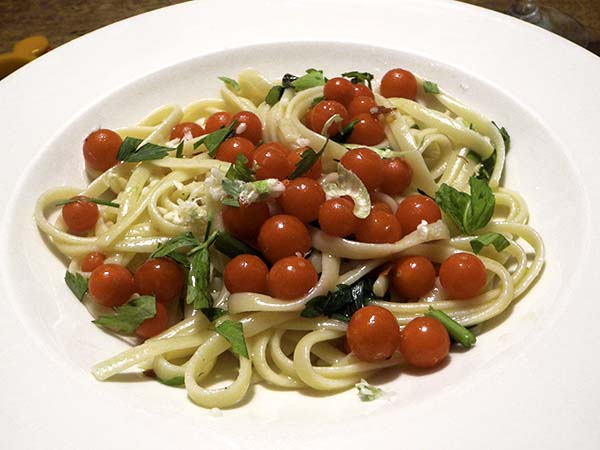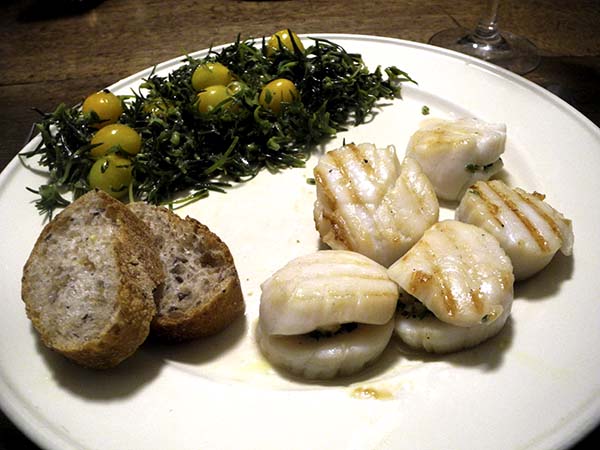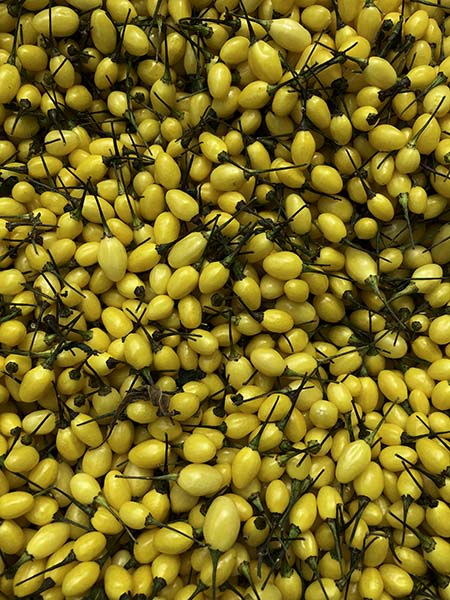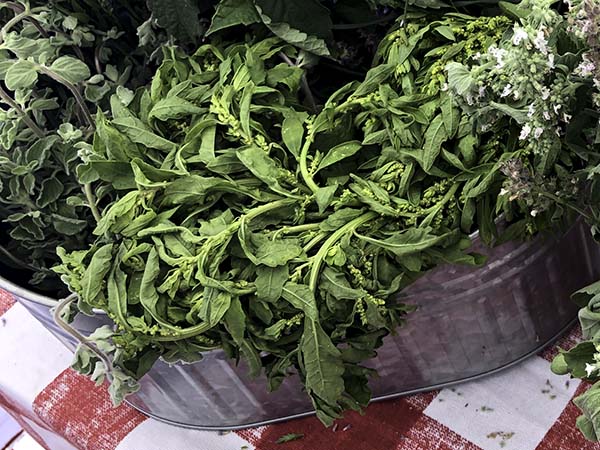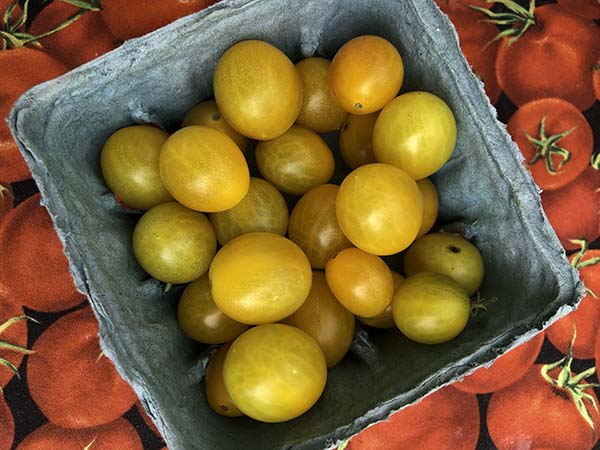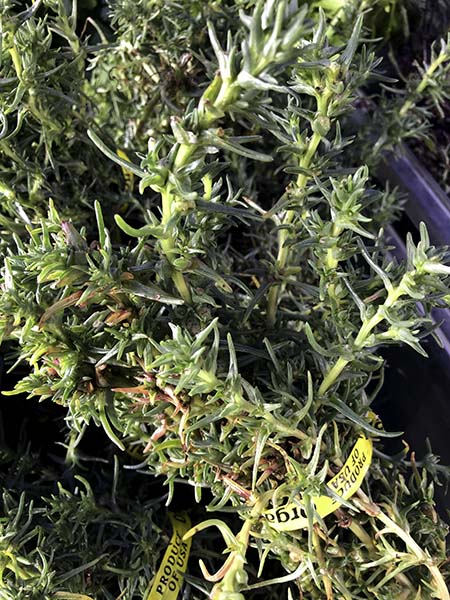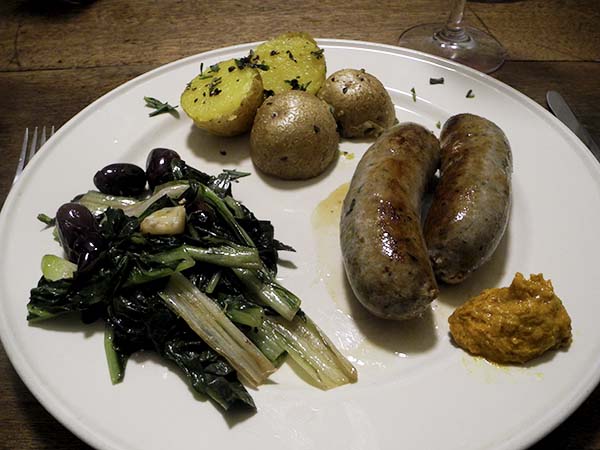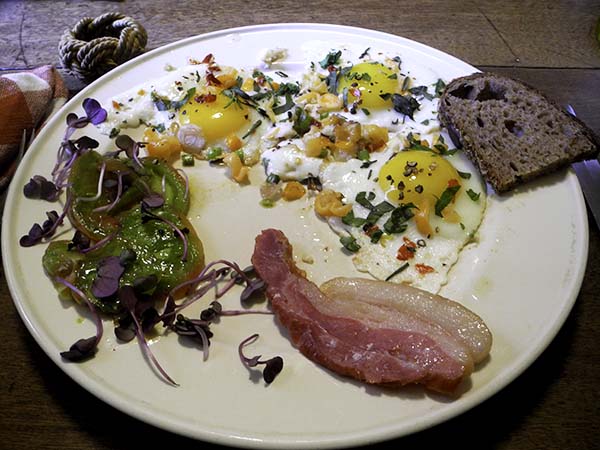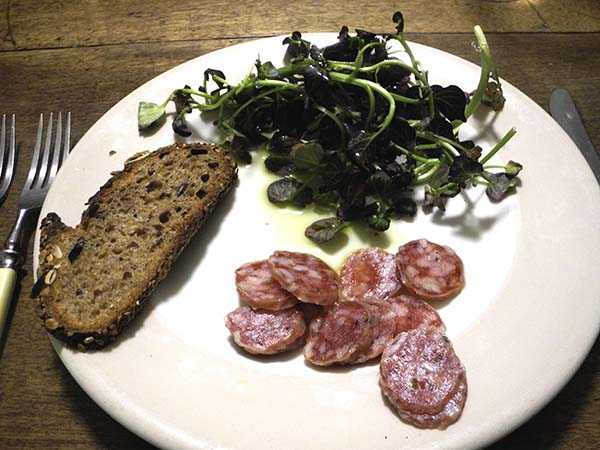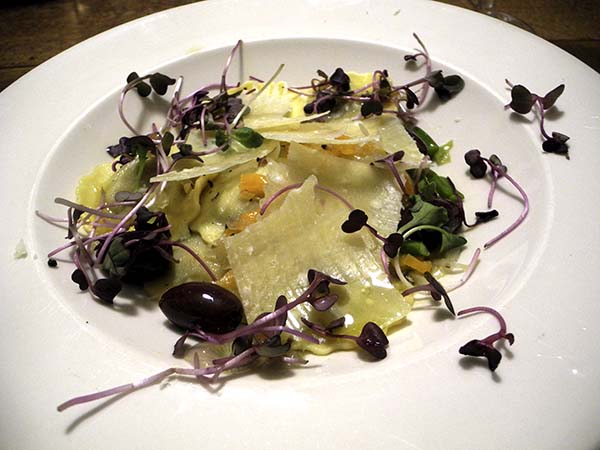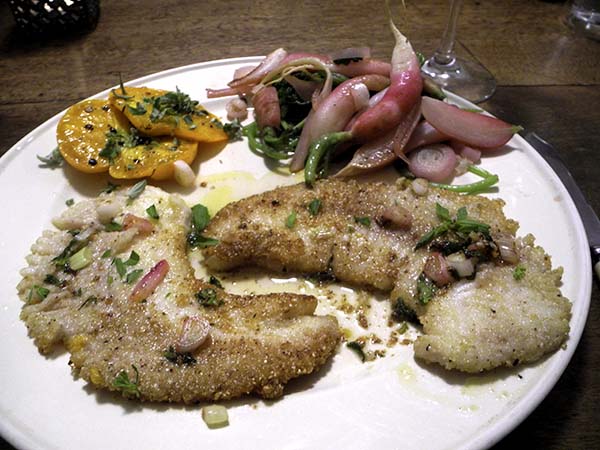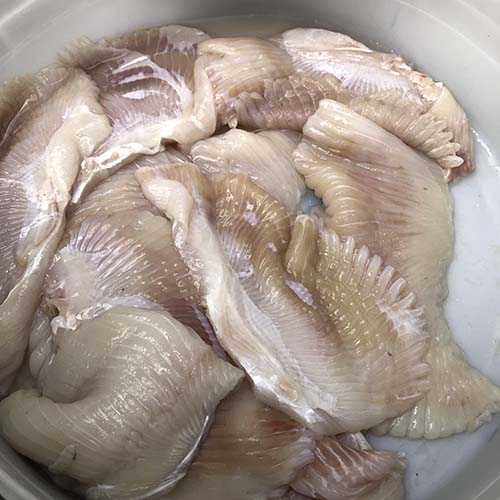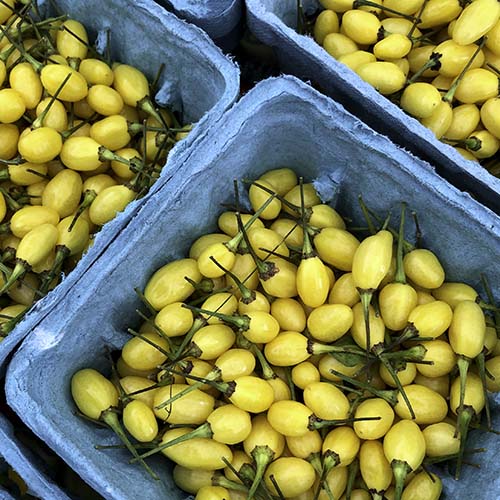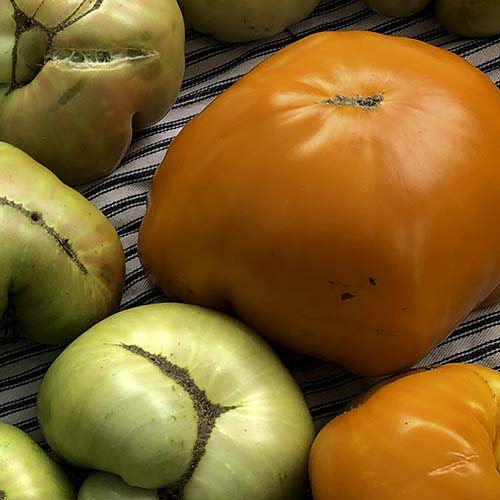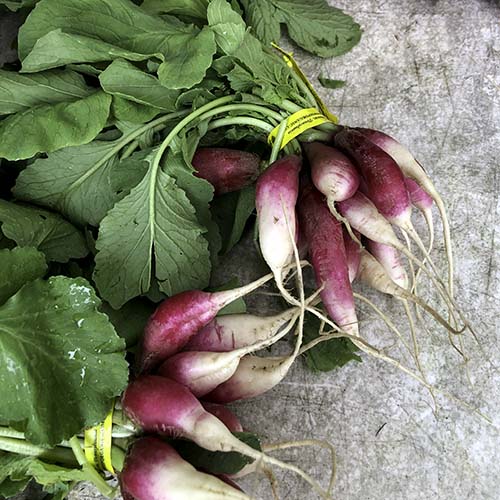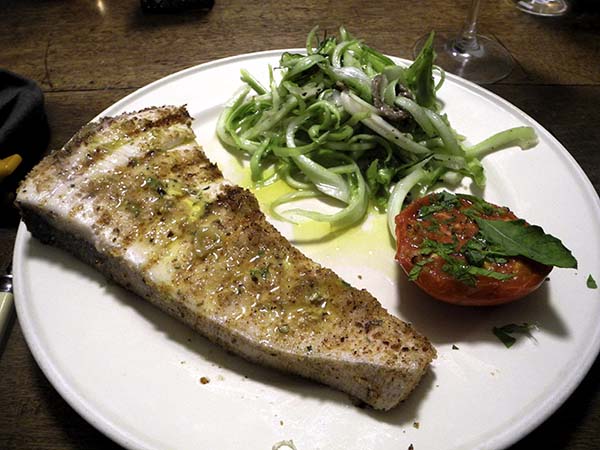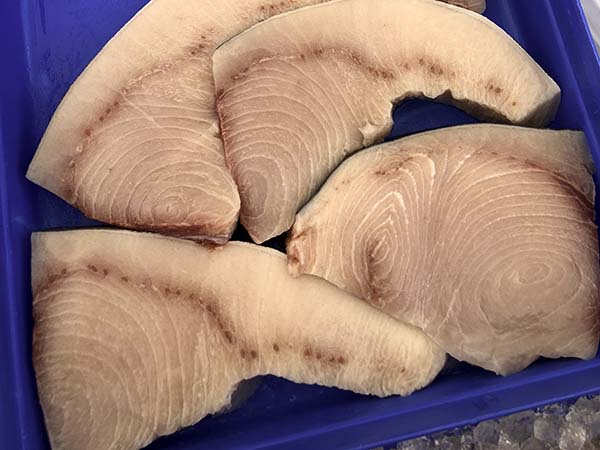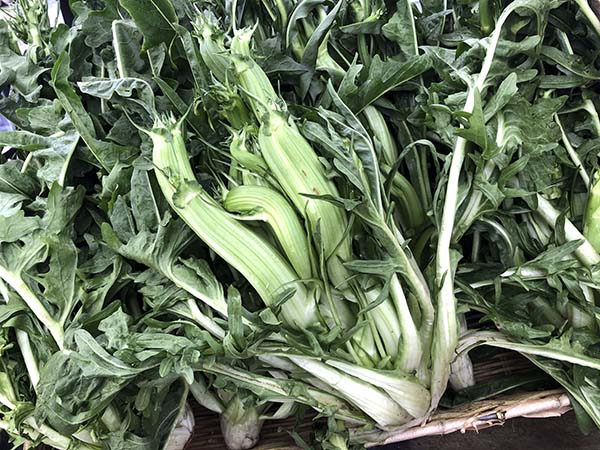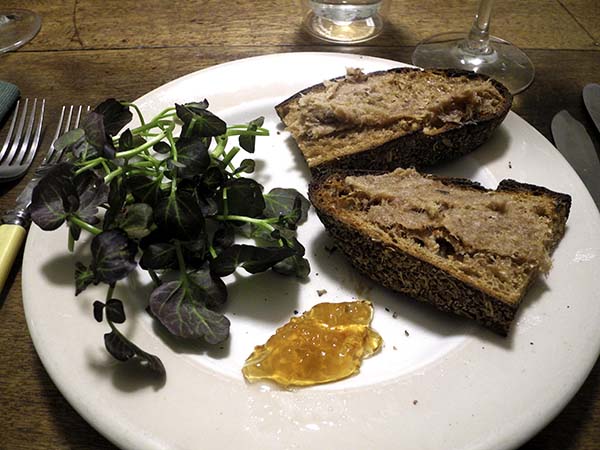
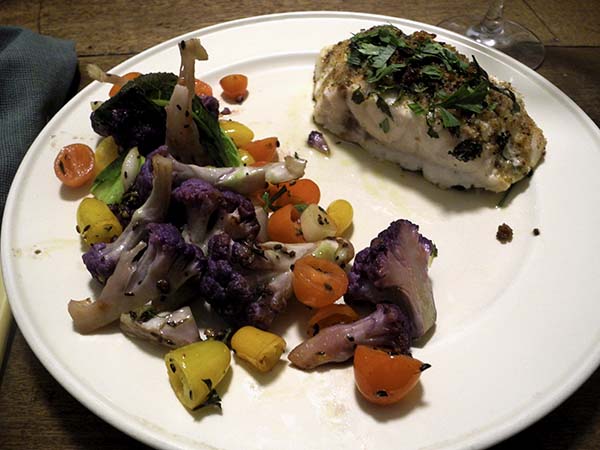
A friend visiting from Los Angeles joined us for dinner on Wednesday. She had last been here in January, when we enjoyed a very middle-of-winter meal, (as in, duck, cabbage, sweet potatoes), so there was little chance of repeating anything this time.
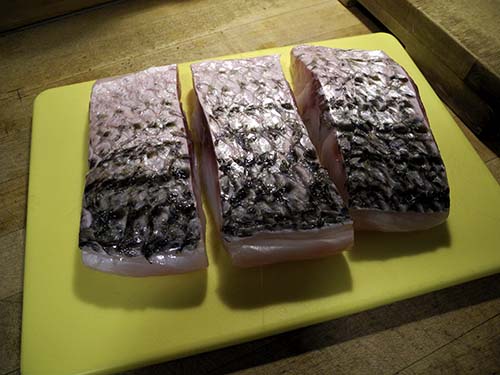
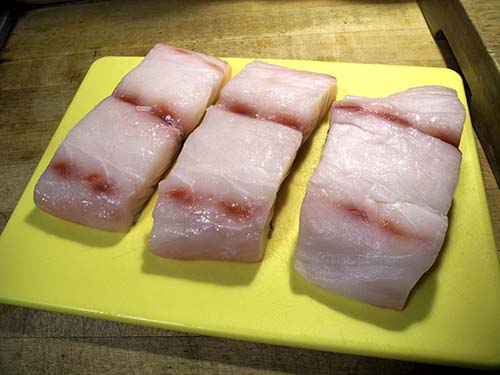
That afternoon I brought home three beautiful striped bass fillets from the Union Square Greenmarket, displaying glistening silvery skin on one side, fresh pink flesh with 3 dotted bands of cherry red on the other. It had been line-caught in Long Island waters, probably the day before, becoming one of the mere 220 of the species that his license, and that of every other area fisherman, would allow him to reel in this year; it was a number that authorities had determined would protect a species that had been commercially over fished not may years ago. I felt it was an honor to share it, and I wanted to do it justice.
It was summery, and so were the herbs that blanketed it.
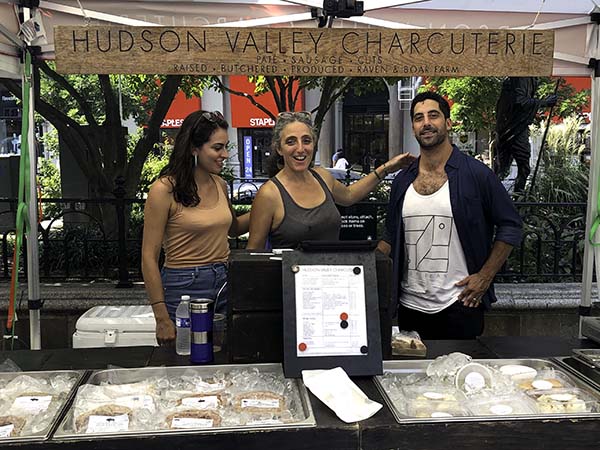
But then I picked a fresh bit of charcuterie as well, which doesn’t particularly say summer. When I stopped by the stall of Hudson Valley Charcuterie in the Greenmarket I think I was so distracted by the ‘fresh’, ‘local’, and ‘pork’, thing that I totally lost my focus on a summer concept, but at least each of the two courses had their own individual character. Ruby Duke, the farmer, calls smoked pork rillettes “the gateway charcuterie”, and I totally understand.
Ruby is in the center of the photograph above, Wolf is on the left, and Louie, Ruby’s brother, is on the right.
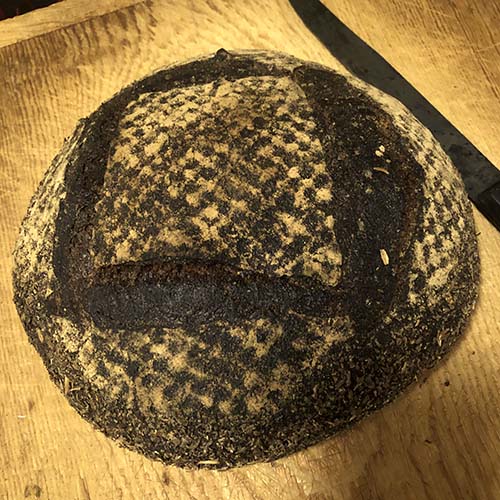
Because rillettes are quite rich, they are usually served on a white baguette, with cornichon on the side, to offset that heaviness, but I rarely have either of those in my kitchen. I’m also not a strict traditionalist, and I have no fear of rich food, so on Wednesday I served this wonderful local charcuterie with sturdy whole wheat toasts and a terrific local sweet horseradish preserve.
We had to wait at least a few minutes for the main course, because not everything could (or should) be prepared in advance.
- three thick Striped Bass fillet pieces (8 or 9 ounces each) from American Seafood Company, washed, drained, brought to room temperature, arranged skin side down resting on a coating of about a tablespoon of olive oil on the bottom of a medium glazed terra cotta pan, scattered with a mixture of chopped fresh herbs, specifically, ‘za’atar’, or, technically, origanum syriacum, from TransGenerational Farm, peppermint from Alex’s Tomato Farm in the Saturday 23rd Street farmers market, lovage from Keith’s Farm, plus one partially-crumbled fresh bay leaf [fresh bay leaves from Uncle Vinny’s, possibly Columbian] from Westside Market [almost any fresh herb or combination of herbs could be used in this recipe], seasoned with Phil Karlin’s P.E. & D.D. Seafood Long Island Sound sea salt and freshly-ground black pepper, sprinkled with some of my homemade dry bread crumbs (these very newly made) and drizzled with a little olive oil, placed inside a 425º oven for just under 25 minutes, removed when cooked through, sprinkled with a bit of chopped parsley from Jersey Farm Produce Inc. in the Saturday 23rd Street farmers market and arranged on the plates, squeezed with the juice of a small organic Mexican lemon from Whole Foods and drizzled with olive oil
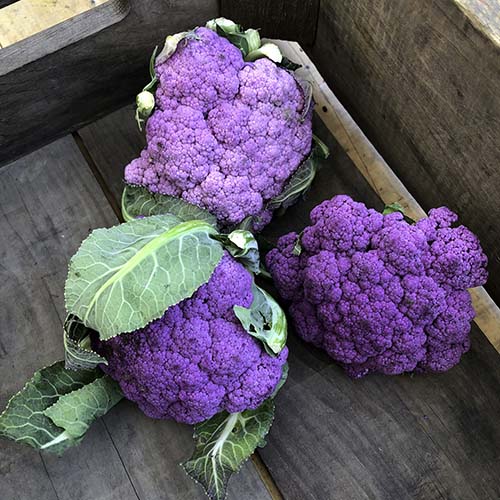
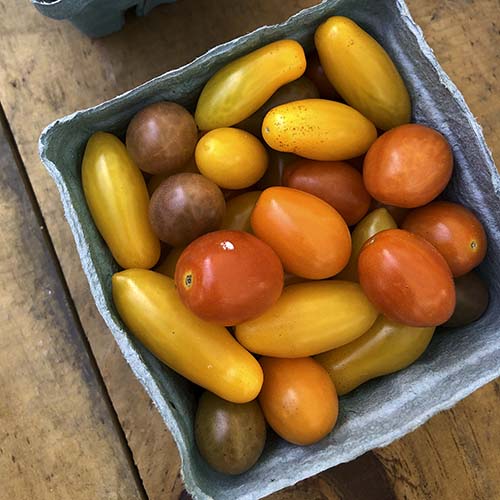
- the florets of a small head of purple cauliflower from Tamarack Hollow Farm sautéed until beginning to color and soften in a pan in which 3 roughly-sliced cloves of ‘Chesnok Red’ garlic from Alewife Farm and more than a teaspoon of dried Semi di Finocchietto Ibleo (wild Sicilian fennel seed harvested in the Iblei Mountains), from Eataly Flatiron had first been heated, the cauliflower braised for a few minutes until beginning to soften, one finely chopped quite tiny very hot Brazil wax pepper from Eckerton Hill Farm stirred in before being joined by 5 ounces of small tomatoes of many colors and shapes from Tamarack Hollow Farm, and, to add some bright red to the scheme, half a dozen ‘Super sweet 100’ cherry tomatoes from Keith’s Farm, all halved and seeded, and the cooking continued, gently, until the tomatoes had been heated through and become a full partner in the mix, the vegetables finished by stirring in some chopped winter savory from Keith’s Farm
- the wine with the second course was a Spanish (Bierzo) white, Bierzo Godello, Abad Dom Bueno 2017, also from Astor Wines
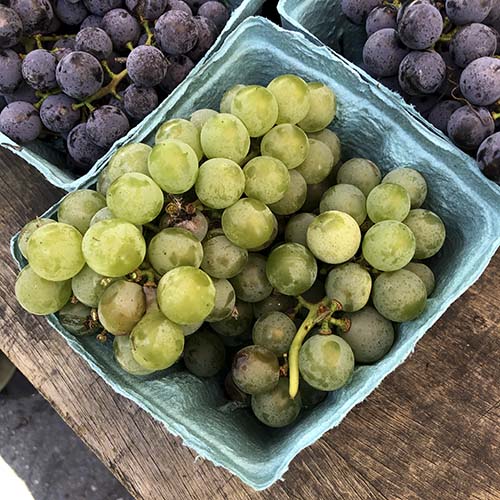
There was a plain fruit course after the fish.
- bunches of Niagara Grapes from Locust Grove Fruit Farm in the Union Square Greenmarket, rinsed in very cold water and arranged in a bowl, with small plates at each setting
- the music throughout was our own conversation, accompanied by a number of albums on Spotify devoted to the music of the Czech composer, Leopold Koželuch (1747-1818), who spent most of his creative life in Vienna
